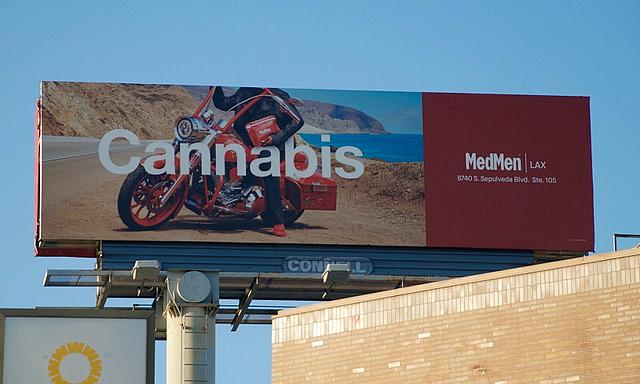Despite legalization, marijuana remains a touchy subject to talk about

“I just felt like (my doctor) didn’t hear me ... and I felt like she had blinders on.”
This was one of the most telling quotes I heard in the six months I spent reporting on how California's public health sector is trying to catch up to the state’s newly legal recreational cannabis market. The woman who said it is in her 30s. She’s a new mom, and she was telling me about why she chose to use cannabis during her pregnancy but not tell her doctor about it. I’m not using her name because she asked to remain anonymous throughout my reporting.
Her words hit on a lot of recurring themes I encountered while working on this project: the growing public acceptance of cannabis; the continued stigma some individuals feel around the drug; the fear of criminal prosecution at the federal level; a belief that conclusive evidence about marijuana’s effects is lacking; and a distrust in the medical and public health communities because they can’t answer questions about it.
For my series, I really wanted to explore these tensions, which only seem to be growing as more states legalize marijuana, both for recreational and medical use. I took a look at the reasons why more women who are pregnant or nursing choose to use pot, and how cities are trying to regulate advertising so kids don’t think it’s cool. I also took a look at how the Los Angeles Unified School District is trying to stem use among its students, and how parents around LA are talking to their kids about cannabis now that sales are legal.
The topic felt particularly relevant to me and our audience because as of this year, Los Angeles is the largest legal weed market not just in California, but in the nation. At the federal level, though, cannabis remains a Schedule 1 drug, meaning the U.S. government considers it to have high abuse potential and no legitimate medical uses. The result of these conflicting policies is that cannabis is more accessible to more people than ever before, yet little research has been done on its health effects, both positive and negative. The public is caught in the middle.
As access has increased, so too has use, particularly among those between ages 18 and 25, according to the National Survey on Drug Use and Health. Yet one of the barriers I didn’t fully anticipate when I set out to report my stories was how hard it was to find people willing to talk about it publically. This was without question the biggest hurdle I faced throughout my project, especially for my story on marijuana use during pregnancy. I had little trouble finding women who would talk to me about it on background, but building enough trust to get them on the record was very difficult. Ultimately, I was able to find two women willing to share their stories, but they only agreed to do so anonymously.
One of the ways I tried to work around that stigma was to think hard about how I described my stories to potential sources, what words I was using, and how I planned to present the final product. I found that even something as small as calling the drug “cannabis” instead of “marijuana” helped me get a proverbial foot in the door with some sources. For my pregnancy story in particular, I was really cognizant of the fact that if I framed it by presenting the two women’s stories, followed by all the medical experts saying use during pregnancy is a bad idea, the story could come off as judging their parenting decisions and ultimately betray their trust. It was important that try to present both points in a way where listeners would have a harder time writing off either side.
The other major hurdle I faced is something I alluded to earlier: There is very little definitive research on the health effects of cannabis. Working in that vacuum proved very difficult and at times frustrating, because there wasn’t a lot of solid data to help inform my reporting. Researchers like Dr. Daniele Piomelli at the University of California, Irvine, are working to try to fill that void.
Still answers to some of the questions that people are asking — how does cannabis affect a growing baby, what does it do to the developing brain, and is there a difference between smoking a joint and eating an edible — could be decades away.

